phia Phillies, respectively, to World Series titles.
In 1981, Jim returned to the Puget Sound region to play outfield for the Tacoma Tigers, then the Triple A affiliate of the Oakland A’s. The following season he was the club’s hitting coach while also squeezing in 10 at-bats as a designated hitter. All told, he had more than 4,000 at bats in nine minor league seasons while also playing in Japan and Mexico.
Jim’s longevity in the minors stretched into the mid-2000s as a manager and coach.

He managed in the Athletics system from 1981–89, for the Mariners organization from 1990–91, in the Blue Jays minor league system from 1992–95, and a decade later with the Texas Rangers minor leaguers in 2005–06. Jim also managed the Amarillo Dillas in the Independent Texas-Louisiana League in 1996 and was a coach for the Spokane Indians in the Northwest League in 2005 and 2006.
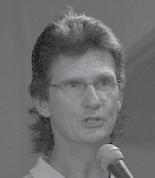
Eventually, Pierce County became his full-time home, and he continued his involvement in baseball as a hitting instructor for youths.
Michael Wholey—While the strikeout has become an increasingly common occurrence in baseball today, Michael Wholey was racking up the K’s and showing no mercy to his fellow junior high and high school players in the early 1970s.
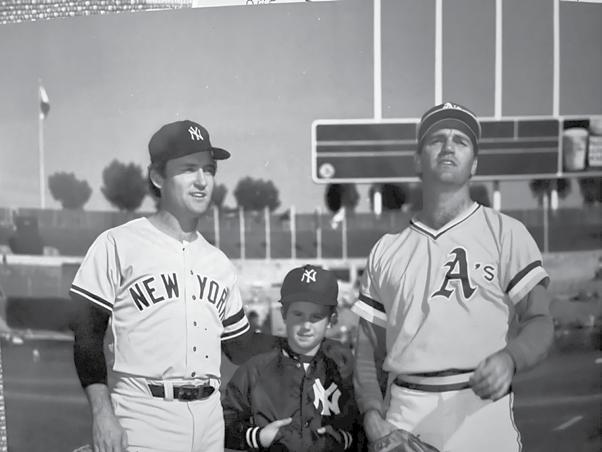
Born Jan. 23, 1956, in Fort Worth, Texas, Wholey made his opponents in the South Puget Sound region wish he’d never left the Lone Star State. Pitching for Mann Junior High in the South Puget Sound Junior High School League Championship, Wholey pitched a 13-strikeout no-hitter to give Mann the title and a perfect 8–0 final record.
Moving up to Lakes High School, Wholey continued his fire-balling ways with numerous doubledigit strikeout performances. He notably struck out 15 batters in a 4–0 win while plating two runs himself in a 2-for-3 performance as a junior. That year, he
compiled a 6–2 record with a 0.58 earned run average, striking out 68 batters in 63 innings and earning SPSL all-league honors.
Wholey was even more dominant as a senior in 1974, finishing the year with a 10–2 record—including eight complete games and a 0.24 ERA in 86 innings. He helped pitch Lakes to the state tournament, recording 15 strikeouts against Kelso and at one point retiring 18 batters in a row.
Wholey’s legend only grew throughout the season. There was the game where he injured his finger sliding into second and still struck out 12 in a five-hitter to earn the win. There was the win over Puyallup where he struck out 10 and figured in both runs. There was the five-hit shutout against Juanita that included his headlong dive to put the Lancers up 2–0. Then there was the 20 innings pitched in less than a week at the state tournament—setting a school record. Wholey graduated from Lakes with countless school records, perhaps most impressive being 139 strikeouts in 86 innings as a senior. He pitched in the All-Star game at Cheney Stadium that June, striking out nine hitters from the East team. That year, he received Team MVP, all-league and all-state honors. He was drafted by the Boston Red Sox in the 13th round, and one year later the New York Mets selected him in the ninth round. He wrapped up his playing career with Green River and Ft. Steilacoom Community College in the late 1970s.
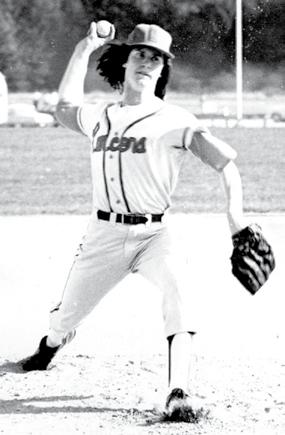
38
Mike Wholey was a standout pitcher for Lakes HS his senior year with a 10–2 record, helping the Lancers earn a state tournament berth.
Graig Nettles (left) hit 390 major league home runs and Jim (right) hit 16. The #1 brother combination is Hank Aaron with 755 and brother Tommy with 13.
Brian Sonntag (Modified)—Born into a family of athletes and public servants, Brian Sonntag not only spent 40 years in public service but he also carved out a niche in Tacoma softball history as player and coach for several teams over a period of two decades, and later as administrator.
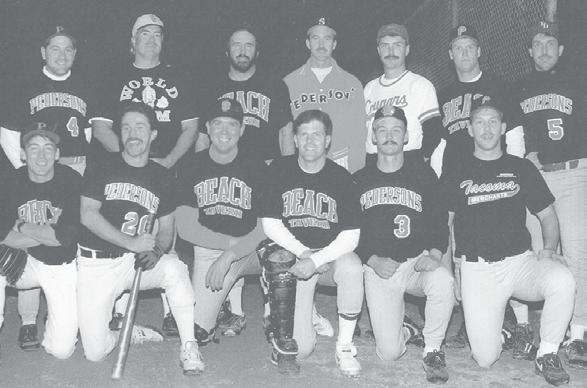

He played baseball in his days at Stadium High School, then attended University of Puget Sound. After beginning his softball playing career in slowpitch, he took a liking to modified fastpitch and was a key figure in “both getting it going and keeping it going” in Tacoma through the 1980s and ‘90s. “To me,” he said, “modified was more like baseball than either slowpitch or fastpitch which is so controlled by pitching.”
He played primarily first base and third base, and as coach he called the shots for Parkside Realty, Cheers West, Tacoma Towing and other teams. He also served as Tacoma’s ASA player representative for modified fastpitch, attending meetings around the region. “It wasn’t me, but the people there with me,” Sonntag said of his small diamond accomplishments. “With modified fastpitch, just getting our leagues started and then seeing the substantial growth (about 40 teams at one point) was very satisfying. The top two or three Tacoma teams were competitive with any around the region.”
Sonntag was busy elsewhere as well. He teamed with the late Bob Maguinez to coach a modified fastpitch women’s program at Tacoma Community College in 1989, and also spent many hours coaching youth baseball and basketball teams. When his years as Pierce County and Washington state auditor came to an end, he took up umpiring high school softball
and weekend tournaments. He also served a term as president of Western Washington Umpires Association. All his other accomplishments are frosting on the cake, Sonntag said, adding: “The highlight for me was always the game.”
Audrey Lakowske Vaughn (Women’s)—Sports have always had a role in Audrey Vaughn’s life, and she has made that a family tradition that continues to this day.
Born June 7, 1926, in Tacoma, Audrey graduated from Stadium High School in 1944. While there were no inter-school sports competitions for girls during that time, she played second base for the 1945 and 1946 Washington state champion Lincoln Electric women’s fastpitch team. But don’t think that her skills were limited to the diamond; she also played guard on the 1945 City Basketball Championship team.
Despite her lack of school sports opportunities as a child, Audrey continued to place a priority on athletics throughout her entire life. In 1967, she and her husband Tex started an 8-andunder league for junior soccer. Tex was an active fastpitch player in the area, including placing second in the 1950 state tournament and fourth at regionals with Whylie’s Cafemen. In her later years, Audrey has become quite the successful golfer, winning the ladies championship at Madrona Links
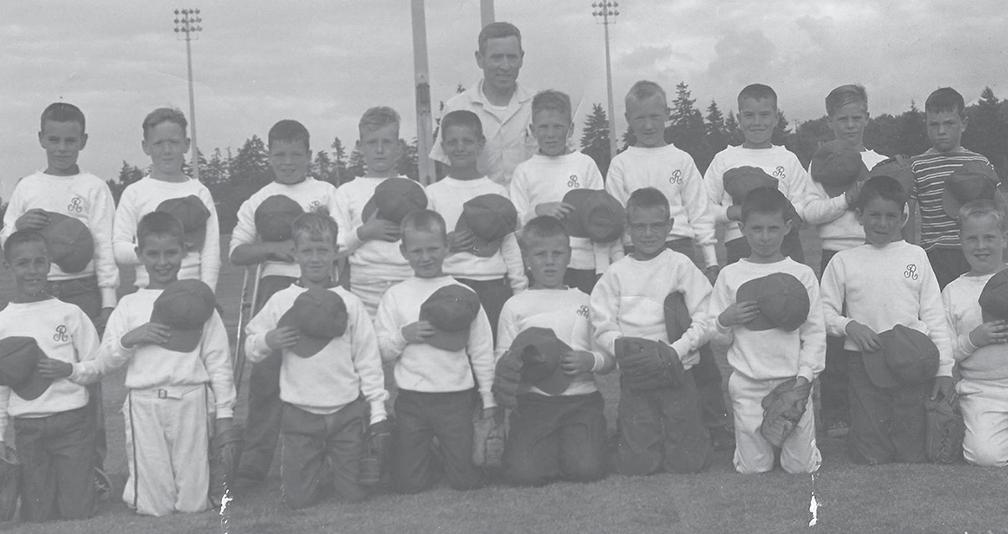
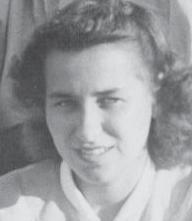
39 FASTPITCH
2022 Hall of Fame Inductees continued
1961 St. Pat’s Shamrocks 3rd grade softball team Back row l. to r.: Tom Ring, John Lester, Jim Gallican, unknown, Rod Koon, John Galbraith, Dan Inman, Brian Sonntag, Greg Race and Galligan’s little brother. Front row l. to r.: Jim Catalinich, Bernard Lomax, David Gribbon, David Aldrich, Billy Brennan, Dan Bader, Tim Daly, John Riconosciuto and Irvin Wallentini. Coach: Mr. Daly.
1989 Beach Tavern Modified Fastpitch Team—Back row l. to r.: Woody, Brian Sonntag, Craig Johnson, Carey Bogue, unknown, Butch Tomlinson, Ed Troyer. Front row l. to r.: Mark Young, Rich Rasmussen, Dan Lean, Rob Masko, Roy Young, Randy Mauch.
in 1992 and the Ft. Steilacoom Ladies Nines title from 1997–2000 and again in 2002. She’s won the Gold Medal in the 74–79 age group in the Washington State Golf Championships, and in 1999 helped organize the Pierce County Senior Games that sought to give local seniors an opportunity to get out and compete.
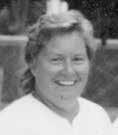
“I golf to get out of the house and meet people,” Audrey said at the time for a story in The News Tribune.
SLOWPITCH (WOMEN’S)
Rhondi Adair—Born on January 7th, 1958 in Renton, graduated from James Madison High School in Vienna, VA in 1976 and from Central Washington University in 1981 and enjoyed a 27-year career as the Athletic Director at Annie Wright School in Tacoma. While growing up in the Kent area, Adair got involved in basketball, volleyball and softball through the Catholic Youth Organization (CYO) in the days before Title IX. She continued in athletics—adding tennis, through her school years, winning numerous MVP, sportsmanship and leadership awards.
Softball was her passion well into her adult years. She reached her zenith on the diamond in the early 1990s with the Portland Reign. Selected an All-American with the Reign, which often clashed with another talented Northwest softball team–the B&I team from Tacoma. Rhondi got to know the players and ultimately joined with them to play on the OMT (One More Time) and TOP (Too Old to Play) teams, where they continued to excel. Adair started coaching at age 11 in CYO. Though she had plenty of parental supervision, they pretty much let her run the show, and it was that CYO experience that started a career revolved around athletics that now spans 48 years. Rhondi spent 27 years as the Athletic Director at Annie Wrigh School in Tacoma where she became a Certified Athletic Administrator, a national certification.

You name it, Adair has coached it: high school volleyball, basketball, soccer, softball, golf, crew and… orienteering. Yes, when she accepted the job of Director of Athletics at the St. Thomas School, its only organized athletic team was in orienteering. While getting to know just what orienteering is–athletes navigate by foot from point to point outdoors as fast as possible while using only a map and compass–Adair saw her new charges win national championships.
In recent years, she has grown St. Thomas’ menu of sports to 28, all while coaching the new middle school in Medina to establish its athletic program. A Northwest native, Adair spent her late high school years in Virginia after her dad was transferred. There she learned that competitive scholastic sports were far more advanced in the East than in the Northwest. She experienced a full range of sports, and other highlights include being a cancer survivor, induction into the James Madison (Va.) High School Hall of Fame, and being recruited by tennis legend Billie Jean King to play on a professional softball team.
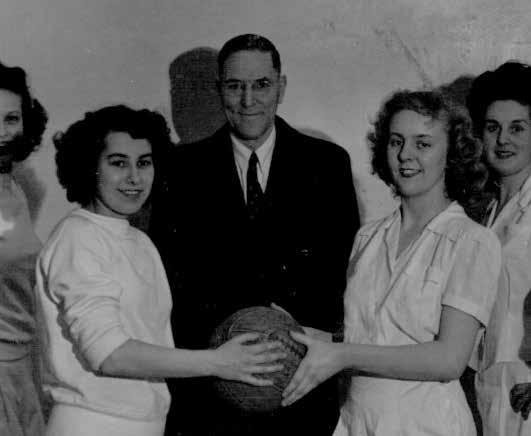
40
2022 Hall of Fame Inductees continued
Audrey (left) and teammate Vivian Peterson were members of the 1945 City League Basketball champions lead by Coach “Duke.”
Lincoln Electric—1945 Washington State Champions Back row l. to r.: Marian Ricono (Dubois Stahl), Betty Rowan (Bland Hart), Jackie Church Pagni, BeBe Blake, C. Long, and Bob Huegel (coach). Middle row l. to r.: Maureen MacLaughlin, Katy Vaughn, Peggy Moran Ruehle, Betty Lanzetta (Keffler), and Agnes Hulscher. Front row l. to r.: Margaret Heinrick, Patty Smith, Teddy Davis, Audrey LaKowske Vaughn, and Bobbie Huegel, batboy. Photo courtesy of Audrey Vaughn.
Lisa Barron—An early sign of Lisa Barron’s multi-sport athletic abilities came when she helped lead the Stadium Tigers to triumph in the state’s inaugural WIAA girls slow-pitch softball championship her senior year, 1979. A shortstop with what her adult softball coach Kathy Hemion later called great range, a rocket arm and an intense love for the game, she teamed with fellow stars Denise Hutchinson and Denise Morrell to lead that Stadium squad.
That may have provided the first wide recognition of Barron’s athletic exploits, but not the last. She also played varsity basketball at Stadium. Outside of school, she earned a black belt in Harai Judo while competing across the country. She was also involved in organized soccer, basketball and softball, including the B&I Sports women’s softball team, coached by Hemion and Lori Callaghan.
Barron, born July 22, 1961, also teaches, coaching basketball at Sumner Junior High School, and racquetball at the YMCA.
After a stint at Tacoma Community College, where she competed in basketball under coach Kathy Spadoni, Barron began a long career with the Seattle Fire Department. She worked her way up to the rank of Lieutenant, and she also played for the SFD basketball and soccer teams.
Twice in the early 2000s, her standout abilities in softball and racquetball took her to the biennial World Police and Fire Games. She traveled with the Vancouver-based Canadian softball team to the Games.
While she has earned numerous medals and trophies in everything from judo to racquetball, basketball and soccer, her softball exploits set her apart. She has been an MVP and the best player on both offense and defense while racking up all-star honors year after year.
Her mementos include her name tag from the 1978 national high school judo championships in Honolulu, a booklet of pictures from Stadium’s 1979 state softball championship, a placard from the 1986 USSSA “A” state championship and a newspaper clipping of the B&I team’s third-place finish in a national softball championship.
Her B&I team followed that third-place result by winning six games in a row to win the USSSA Western Regional “B” championship in Salem, Oregon. Joining Barron on the All-Region team were Hemion, Carol Auping and Vicki Miller.
Cindy Van Hulle —Cindy Van Hulle loves to play softball, loves the camaraderie, loves the competition; and she’s grateful she was allowed by her parents, Dave and Anna Van Hulle, to get involved in athletics in the 1960s “before it was the cool thing to do.”
“I learned so much from my teammates and coaches; to learn, to work hard, to appreciate others’ efforts as much as my own, and to be grateful for every opportunity…,” Van Hulle said.
Born Jan. 14, 1954, Van Hulle grew up in Puyallup and played softball from 1969 to the late ‘90s. A catcher in fastpitch, a shortstop in slow pitch, she earned numerous all-star selections and played for league and district champions, including Rogers High School through her 1972 graduation. After she went to PLU, she coached the Rams from 1976 to 1991, winning a state championship in 1983.

Van Hulle also played for Soine’s Loafers, coached by shoe salesman Mal Soine. That’s how Mal’s daughter, Gwen Soine Gaspard, met the friend she calls “CVH.”
“I was in awe,” Gaspard said. “(She) was likely the only Division I (level) athlete I ever rubbed elbows with. She was just that good. And I can still claim her as one of my best friends.”
Highlights included playing in several Pierce County vs. King County all-star games, including CVH getting a one-bounce hit to center field in Seattle’s Sicks Stadium in her first appearance, and a two-bounce hit to left field at Cheney Stadium in Tacoma.
Other sports caught Van Hulle’s interest, leading her to play several years of basketball, coached by Gary Wusterbarth. She also became a runner and completed 15 marathons across the United States and Canada, including in Boston and New York.
Coaching Rogers to the 1983 state title in softball was just part of her run of top-5 finishes in the state tournament. She also coached Ferrucci Junior High
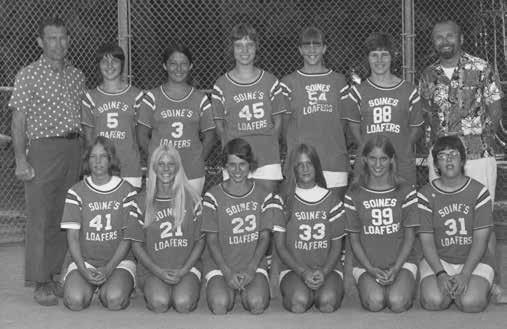
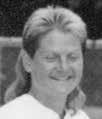
41
2022 Hall of Fame Inductees continued
1971 SOINE’S LOAFERS—PIERCE COUNTY PARKS SENIOR LEAGUE CHAMPIONS—Front row l. to r.: Mary Jo Harvey, Peggy DeVany, Linda Kays, Bonnie Ando, Gwen Soine, and Deby Van Ohlen. Back row l. to r.: Dave Van Hulle, Unknown, Janet Kerns, Unknown, Unknown, Cindy Van Hulle, and Malcolm Soine.
School in volleyball, girls basketball, girls cross country and boys and girls distance running. She coached her teams to league championships in every sport.
As for awards, “I never kept track (of them). I was never in it for that. I loved the people I played with and against.”
SLOWPITCH (MEN’S)
Danny Cooley—Although his prep athletic career was spent on the soccer pitch and basketball court— where he was earned all-league and all-state honors, Danny Cooley has left his mark on the softball field as one of the impact players of the South Puget Sound region.
Born in Tacoma on March 17, 1969, Cooley graduated from Franklin Pierce High School in 1987 and attended Pierce College. But as a 17-year-old, he joined his brother Todd on the People’s Church slowpitch team, and that proved to be a turning point for his life.
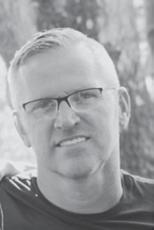
“I got one hit the entire summer,” Cooley said. “I was just a soccer player hanging out with his oldest brother living the life!”
While he started as a leadoff hitter, Cooley soon learned the long ball swing and became a dominant
bat that regularly posted averages above .700 with on-base and power abilities. He went on to earn many state MVP awards, as well as many all-tournament honors at the A/AA, and Major level. He’s played third base and shortstop for most of his slow-pitch career, playing with several teams including Cope Brothers, People’s Church and Tacoma/Long Pest Control. He won the 1993 world championship with People’s Church and played on Tacoma Dodge/Long Pest Control teams that placed in the top five nationally multiple times.
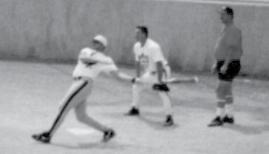
Cooley has been playing USSSA softball for over 18 years. His reason? “When I started, if you wanted to play with the best, you played USSSA. It is that simple.” He was elected into the Male Player category of the USSSA Slowpitch Hall of Fame in 2010, once again joining his brother Todd, who was inducted two years earlier. And remember that soccer was originally Cooley’s best sport. He was selected by the Tacoma Stars in the third round of the 1992 Major Indoor Soccer League draft and played for the Tacoma Galaxy, which won the national indoor soccer championship in 1993. But while both soccer and softball have brought championships to his trophy case, only one could provide him with the most important ring. Cooley met his wife Krista while playing slowpitch in 1993 and they were teammates for many seasons. In fact, Cooley proposed by pitching her a ball with a ring inside of it at Gonyea Park.
UMPIRES
Graig Bolton—Iowa native Graig Bolton has risen to the top levels as a softball umpire through a fourdecade career in the game.
Graig was born on Dec. 4, 1960, in Okaloosa, Iowa, and later graduated from Lincoln High School in Des Moines, Iowa. Shortly thereafter, Bolton entered military service, where got his start as an umpire in Fallbrook, Calif.
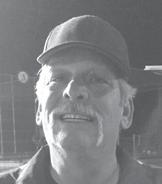
He continued to umpire games when stationed in Okinawa, Japan, and “umpired around the base”
CONGRATULATIONS
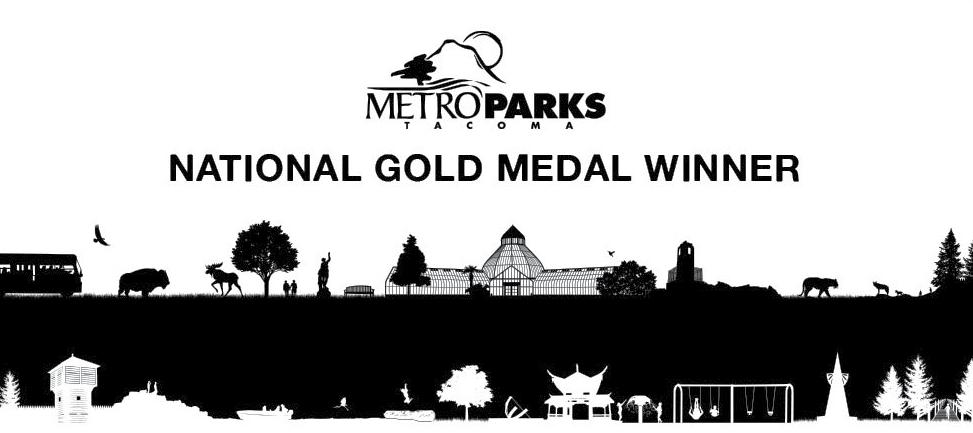
42
2015
Hall of Fame Inductees continued
to The Tacoma-Pierce County Baseball-Softball Oldtimers Association and honorees.
Cooley crushes another four-bagger that left the launch pad with such velocity that the whole ballpark shook…including the lens.
after his return stateside to Camp Pendleton in Southern California.
Once out of the service and back in his home state in the city of Ames, Graig didn’t miss a beat when it came to serving on the diamond, umpiring baseball and softball, specifically ASA.
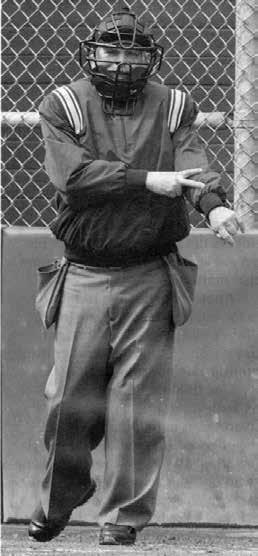
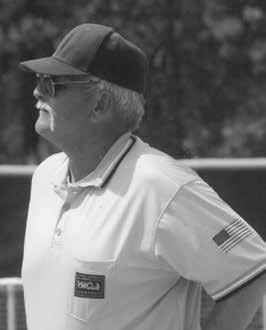
Next came a move to Washington state, where he joined the Western Washington Umpires Association in Tacoma. He has been a high school state tournament umpire every year since 1996.
Graig has worked in 13 ASA/USA national softball tournaments, including eight fastpitch and five slowpitch, and at five NSA national events (including the organization’s largest ever with 896 teams in Columbus, Ohio) and two Super World Series in Las Vegas.
When not on the diamond, Graig spent 21 seasons as a high school volleyball referee in Pierce County. He is employed as a security officer at Snoqualmie Summit.
Melodie Fox —Melodie Fox is recognized here for her contributions to local softball and baseball leagues as an umpire, but calling balls and strikes, safe and out, is just a piece of her involvement in athletics since growing up in the 1960s in Puyallup.
In 1972, just a year after graduating from Puyallup High School, Fox was the first female umpire inducted as a regular umpire of the Western Washington Umpires Association. Active until 2015, Fox umpired baseball and softball games at district, state, regional and national championship levels. Fox was also a charter member of the Tacoma Basketball Board for officials. From 1971 through 2013, she worked many district, state and Special Olympics tournament games.
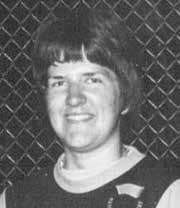
When she wasn’t officiating a game, she was usually playing in one. Fox played tennis and basketball at Puyallup High and then contributed to many Pierce County Parks and Recreation teams in volleyball, basketball and softball into the mid‘80s, winning several league championships. Fox also mixed in some racquetball, downhill skiing and ice hockey to expand her athletic experiences.
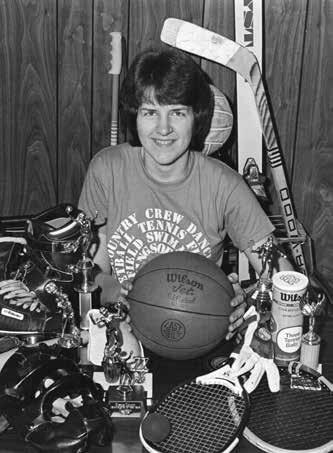
Lola Morrone A native Tacoman, Lola Morrone was born on January 23, 1933 and graduated from Lincoln High School in 1952. She worked in the Medical Transcription Department at the Troop Medical Clinic at Ft. Lewis for 20 years.
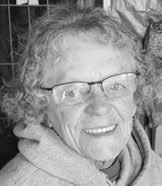
Lola’s extensive umpiring career started in 1973 when she began working girl’s softball for Jeff Buhr who oversaw the Catholic Youth Organization athletic programs. Eventually Lola and Melodie Fox were invited by ASA Commissioner Steve Orfanos to join the Western Washington Umpires Association and started working women’s softball games at all levels of competition. This led to Lola’s selection to umpire the Women’s ASA Slowpitch Nationals in Eugene, Oregon in 1991 and 1992. In addition to women’s basketball, Lola also refereed local high school and middle school volleyball matches for nine years—from 1981–89
Lola was an active participant in athletics over the years playing shortstop during her high school years for the Baskett Lumber fastpitch softball team from 1949–52. Lola then started playing slowpitch for the Chieftan’s Café for two years, Walt’s Radiator for five years, two seasons with Lakes Towing and the final eight years of her playing career as a pitcher for the Han’s Tavern Sheewolves before retiring at the age of 66. Lola also enjoyed competing in volleyball, basketball and bowling. Lola’s induction is the second Morrone to be inducted into the Umpires category of the Baseball-Softball Oldtimers Association as relative Frank Morrone was inducted in 2002 with 28 years of service.
43
2015 Hall of Fame Inductees continued
Name a sport and Melodie has tried ‘em all. Hockey, basketball, tennis, racquetball, pickleball, softball, volleyball and broom hockey to name a few.
That sun feels sooooo good.
I can get this inning done in two minutes. How about you?
2015 Hall of Fame Inductees continued
BROADCASTER/SPORTS WRITERS
Mike Curto—Nobody is more closely affiliated with the Tacoma Rainiers in the 21st century than Mike Curto. Curto has been the radio play-byplay voice for the Rainiers since 1999. The team has been through ownership changes, 10 team managers, hundreds of players and Curto’s voice describing the game action through it all.
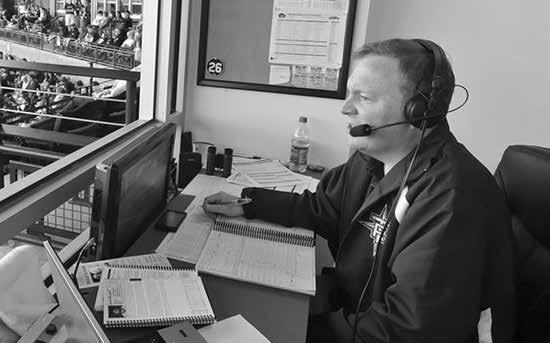
A 1992 University of California-Berkley grad, Curto grew up in the Bay Area listening to Hank Greenwald call San Francisco Giants games. Prior to establishing his long presence on the mic in Tacoma, Curto called the action of Class-A Rancho Cucamonga of the California League for three seasons. Over the years, Curto has filled in on a handful of Seattle Mariners broadcasts in 2011, 2012 and 2015. He did a 6-game stint as a broadcaster for Montreal Expos games in 2003.
Bill Doane—Modern sports broadcasters know how challenging it can be to fill time during slow moments of games. For Bill Doane and his 1973 Tacoma Twins baseball radio broadcasts, the challenge was turning bland play descriptions typed out on a page into a story worth listening to.
Born in April 1936 in Tacoma, Doane is a lifelong Washingtonian broadcaster. He graduated from Lincoln High School in 1954, and after a stint in the Navy and a three-month radio class at Tacoma Vocational School he began his career at KENE in the Yakima Valley.
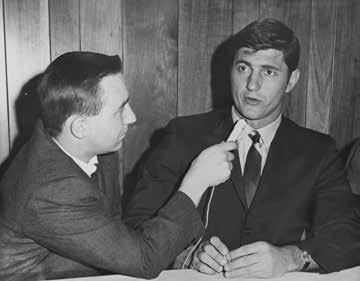
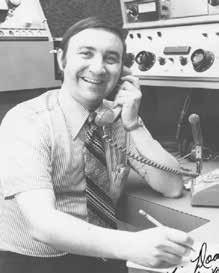
Doane filled any role necessary for the broadcasts, working as a DJ, news and sports reporter at various stations in Yakima, Tacoma, Bremerton and Seattle before settling down in Auburn as news and sports director at KASY. His play-by-play experi-

In his Tacoma tenure, Curto has seen many prominent prospects rise through the Mariners system, including Felix Hernandez pitching in Tacoma as an 18-year-old. Along the way, the Rainiers won league championships in 2001, 2010 and 2021. Curto has been the radio voice of the Triple-A All-Star Game twice (2017 at Cheney Stadium and 2006 in Toledo, Ohio).
Visit the Clay Huntington Broadcast Center at TacomaSportsMusuem.com and you can listen to recordings of some of the most prominent moments in Tacoma Rainiers history that Curto has broadcast. There are clips of two extremely rare home runs that cleared the 29-foot wall 425 feet from home plate in straight away centerfield at Cheney Stadium (A.J. Zapp and Shin-Shoo Choo). You can also hear Curto describe the only perfect game in the 120-year history of the Pacific Coast League (now Triple-A West). Tacoma’s John Halama pitched the gem in 2001.
Read Curto’s blog—Booth, Justice and the American Pastime—at wertacoma.com/category/rainiers/ curto/. Follow him on Twitter at @CurtoWorld.
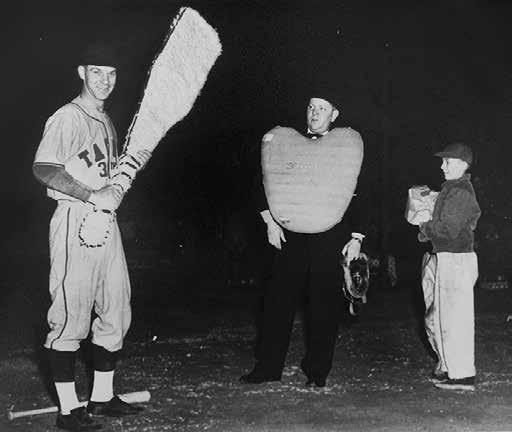
44
Mike Curto called the first nine-inning perfect game in Pacific Coast League history when John Halama hurled the no-hit, no-run gem in 2001.
Bill Doane served as radio broadcast instructor at Clover Park VocationalTech for over 10 years.
Earl Kuper was one of Tacoma’s all-time great catchers, leading the Western International League in hitting in 1947 with a .389 batting average. The umpire, Clarence Stave, was one of the most popular in Tacoma history. The young boy, Bill Doane, later broadcast Tacoma Twins baseball games at Cheney Stadium in 1973. This photo was taken at Athletic Park.
Bill Doane interviews Boston Red Sox Hall of Famer Carl Yazstremski.
ence began in the early 1960s, when he announced football, basketball and baseball games for high schools in Yakima and the Tri-Cities.
While at KASY, Doane carried out numerous part-time roles at KIRO and KVI. He spent one season producing University of Washington Husky football games and announcing the postgame highlight and scoreboard show. But perhaps his most creatively demanding role came with the Tacoma Twins and KTNT.
When interviewed, Bill elaborated that, “Don Hill, longtime legendary voice of Tacoma baseball helped me get started and told me after doing a few re-creations from the studio I would probably find it easier than going to the ballpark to announce the games….at least I didn’t have to climb those stairs to get to the pressbox in Cheney Stadium.”
When the Twins were on the road, Connie Hill, Don’s wife, would be in the booth next to Bill and she would take a phone call every three innings from wherever the team was playing and type up a brief summary of the play-by-play.
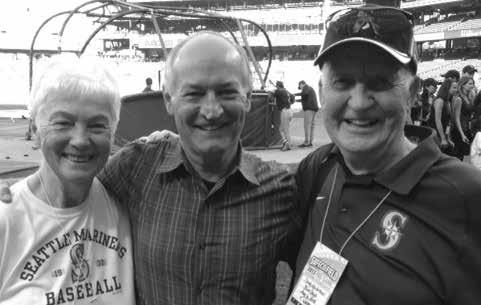
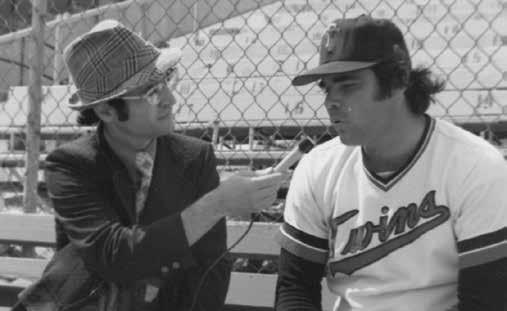
“Single… strikeout… ly-out left… triple; run… ground out second.”
It was Doane’s job to craft the events into a compelling narrative that included balls and strikes, spectacular catches and close plays. Doane also had a Pacific Coast League guidebook with rosters, player stats, a brief summary of the player’s history including height, weight, hometown etc., which came in hand to help fill in the slow spots. As Doane said, “there were plenty of those.”
For about 10 years starting in 1974, Doane served as radio broadcast instructor at Clover Park VocationalTech. He trained his students in the art of play-by-play, giving them experience with school football and basketball games for the student-operated radio station KVTI.
After decades in the business, Doane sums up the key to broadcast success in four simple words he heard from legendary broadcaster Bob Robertson— “you just do it.”
Jerry Howarth—Let’s admire that one—Jerry Howarth’s time in the South Puget Sound region was short but vital to a sportscasting career that has made him a tenured radio voice for Major League Baseball. Howarth, the play-by-play radio broadcaster for the Toronto Blue Jays for more than 30 years began his broadcasting career in Tacoma with minor league baseball and the University of Puget Sound.
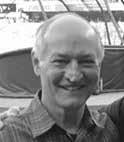
Howarth was born on March 12, 1946, in York, Pa., and grew up in San Francisco before attending the University of Santa Clara. Following his college graduation in 1968, he spent two years in the Army. His broadcasting career began in Tacoma in the mid1970s, as he called play-by-play action for the AAA Tacoma Twins of the Pacific Coast League in 1974,
while also serving as the radio voice of the University of Puget Sound baseball and football teams.
Not long for Tacoma, Howarth moved to Salt Lake City to take over play-by-play duties for the Pacific Coast League’s Gulls in 1976. He followed that with a double-duty stint as assistant general manager and play-by-play broadcaster for the Salt Lake City Prospectors in the Western Basketball Association. That led to opportunities with the NBA Utah Jazz and eventually a Major League Baseball position with the Toronto Blue Jays beginning in 1981.
After splitting time between Salt Lake City and Toronto for one season, he joined Tom Cheek full-time in the Toronto radio booth in 1982. The radio partnership of “Tom and Jerry” lasted 23 years and covered a pair of World Series championships in 1992 and ’93 before Cheek was forced to retire due to deteriorating health in 2005. After that, Howarth shared the booth with Warren Sawkiw and Alan Ashby. After 36 seasons at the mic for the Blue Jays, he retired due to health reasons in February 2018.
Howarth’s short time in Tacoma helped spark a remarkable career that took him to the height of the profession. In retrospect, that experience could recall the crack of a bat and Howarth’s signature home run call as the story of his career: Up! Up! Up! And there (s)he goes!
45
2015 Hall of Fame Inductees continued
Jerry Howarth interviews pitcher Mark Wiley of the Tacoma Twins. Howarth went on to enjoy a long career as the Toronto Blue Jays broadcaster.
Left to right: Arlene McArthur, Jerry Howarth and Doug McArthur who gave Jerry his first broadcasting break doing UPS football games.
2022 Hall of Fame Team Inductees
Al Scott, Sponsor/Manager—Durobilt Furniture
Born July 3, 1939, Al Scott played for and coached the slowpitch softball team sponsored by his family business, Durobilt Furniture & Upholstery.

Scott played baseball and ran track at Clover Park High School before graduating in 1957. He began working at Durobilt in high school—his dad started the business in 1948—and he took over the business before eventually selling it to his son.
The Durobilt softball field started play at Peck Field, as Scott teamed up with fellow Marine Corp Reserve members Gary Fultz, Art McClarney, and Brian Miedinger. With Scott in the outfield and managing, the team eventually moved to Sprinker Recreation Center to play in the highly competitive Western Washington League against such teams as Heidelberg, Lucky Lager, Wested Tire, The Haven, and Murrey’s Garbage Service.
The team’s busy schedule featured doubleheaders on either Tuesday or Thursday in league play, followed by postgame drinks and a late arrival at home. As Scott recalled, “ We would then turn right around and leave on a Friday for a tournament and play all day Saturday and most of Sunday. So, we kind of got in trouble with our wives for not being around very much.”
While the slowpitch team finished play in 1976, Durobilt Furniture continued to sponsor teams including a modified fastpitch team into the 1980s. Overall, Durobilt Furniture & Upholstery sponsored teams for 18 years.

46
1973 DUROBILT FURNITURE—Front row l. to r.: Brian Meidinger, Paul Gustafson, Dennis Cartwright, Al Scott (coach), Mark Wojohn, Art McLarney and Tom Lester. Back row l. to r.: Jack Mattoni, Gary Fultz, Larry Fejfar, Chuck Hagerman, Doug Cail, Dave “Chief” Brewer and unknown.
Coach/Sponsor Al Scott of the Durobilt Furniture slowpitch team accepts the trophy for winning the 1973 Western Washington Slowpitch League championship and qualifying for the regional tournament. Presenting the trophy is Tom Cross, Director of the Pierce County Parks & Recreation Department. In the background is John Rockway, Metro Tacoma Softball Commissioner.
John Messina-the architect of the St. Rita’s Church/Sons

of Italy Softball Teams

Few teams in any sport in Tacoma have had the long history and continuity of players as the softball teams of St. Rita’s Catholic Church and the Sons of Italy. In a thirty-year span, the core of the team began as the St. Rita softball squad in 1958, was transformed into the Sons of Italy teams about ten years later and then returned to the St. Rita’s banner in the late 1980’s.
In 1958, Father Anthony Baffaro asked an 18-year old St. Rita’s Church parishioner, John Messina, to form a softball team to play in the Tacoma Church League. John did not have to look very far to pick up his players. They all lived within walking distance of the church on So. 14th and Ainsworth. The players were all Italian, married to Italians, or lived in the Italian section of Tacoma.
The St. Rita’s/Sons of Italy teams competed in men’s fastpitch and slowpitch, earning several trips to national tournaments. They also fielded corec and women’s teams as everyone wanted to get in on the act. After 30 years the teams hung up their cleats, but they left behind a memorable legacy of fun, camaraderie and athleticism in Tacoma softball history, thanks to John Messina and his love of the game.

47
St. Rita’s Church (1958)—Front row l. to r.: Front Row: Ramo Natalizio, Al Rettura, Tony DeRosa, Joe DeRosa, Ken Schwab and John Messina. Back row l. to r.: Daryl Zadow, Joe (Ross) Munizza, Bob DeRosa, Pat Kelly, Bob Dickson Rev. Anthony Baffaro, S. J.
1915 South Tacoma Tigers
The 1915 South Tacoma Tigers team is one of the few local squads to play for the national title. While records are understandably sparse for a team more than a century in the past, the Tigers won the City League crown and were billed as the Pacific Coast champions despite claims to the title that seem a little vague.
The National Amateur Baseball Association national championship series pitted the Tigers against the Cleveland White Autos in a three-game series at Emervyille Park in San Francisco. Tacoma claimed the first game 3–2 behind the pitching of southpaw Orville Eley, defeating Cleveland ace Louis Crowley, who was called the “Alexander of the sandlots.”
Cleveland came back in a big way to dominate the second game 8–0 as the Tacoma defense fell apart. The Tigers turned to their ace once more on short rest in hopes of claiming the rubber
match, but the short time between starts rendered Eley ineffective. Cleveland again ran away with a big win, 15–5, and took the title on Oct. 26, 1915. That South Tacoma squad, managed by Walt Holmberg, featured a pitching staff of Orville Eley, Ocky Haugland, Chief Gus Davis, and Nick Dahl. Their catchers were Lester (Pat) Patterson, who went on to scout for the New York Yankees, and Jack Farrell. The other members of the team included shortstop Allan Browne, center fielder Julian Shager, third baseman Ocky Jensen first baseman Eddie McTighe right fielder Roy Wilkowski second baseman Paul Shager left fielder Hank Crowl, and center fielder Ob Woods. 1915 City League batting champion Roy Wilkowski joined the team for the championship series.

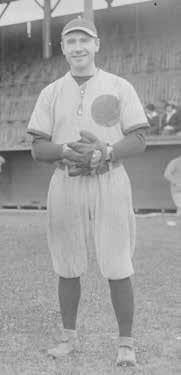
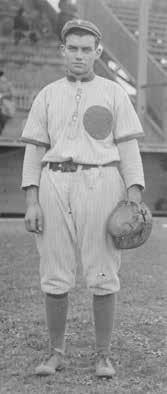
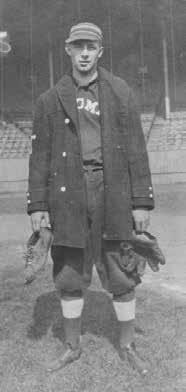
48
Oscar Jensen
Jack Farrell
Allan Browne
1915 South Tacoma Tigers—The South Tacoma Tigers sailed to San Francisco aboard the Admiral Schley ship to play the White Autos team of Cleveland in the Amateur Baseball Championship of the World. The Tigers won the first game 3–2 behind southpaw hurler Orville Eley but the Cleveland entry won the final two games 8–0 and 15–5 for the national amateur crown.
This postcard, dated Oct. 18, 1915 was sent by Roy Wilkowski, a member of the South Tacoma Tigers to his wife. It reads: Hi Honey, We went to the Cliff House today. My hand is feeling fine again. Will write you a letter tomorrow. Roy.


Roy Johnson circa 1937, pictured here in his Boston Bees uniform. Roy Cleveland Johnson was born in 1903 in Pryor, OK. He played major league baseball from 1929 to 1938 an outfielder for the Detroit Tigers, Boston Red Sox, New York Yankees and the Boston Bees and appeared in the 1936 World Series. Like his younger brother, Indian Bob Johnson, Roy was one-quarter Cherokee and grew up in Tacoma, Washington. From 1926 to 1928 he teamed with Earl Averill and Smead Jolley to give the San Francisco Seals of the Pacific Coast League one of its most feared hitting outfields in minor league history.

49 2022 Hall of Fame Team Inductees continued
Members of the South Tacoma Tigers toured San Francisco in style. Team members included Walt Holmberg (Mgr.), Allan Browne, Hank Crowl, Nick Dahl, Gus Davis, Orville Eley, Jack Farrell, Ocky Haughland, Ocky Jensen, Eddie McTighe, Lester (Pat) Patterson, Julian Shager, Paul Shager, Roy Wilkowski and Ob Woods.
Little Jim’s Pub——A 14” Ball Team To Be Reckoned With!
Little Jim’s Pub was a formidable and entertaining 14” slow-pitch softball team from 1970 to 1981. Clad in their black and white pinstripe red-trimmed uniforms, they won numerous invitational tournaments and a handful of Tacoma Metro League titles. The late Bud “ Doc “ Hoff was the energy behind all of the team success. The induction of Little Jim’s Pub into the Hall of Fame is a wonderful tribute and way to honor Doc. His leadership, quick wit and his unwavering friendship is a gift that just keeps giving to all of us who knew and loved him.

Jim Martin was a terrific and generous sponsor and friend. He provided us with the best equipment, uniforms, jackets, fees and best of all his warm and inviting Little Jim’s Pub where we celebrated as a team and became a family.
We won our first 32-team tournament hosted by Alfred’s Cafe at Peck Field in 1970. We were presented with a 5 ft. trophy that Jim Martin proudly displayed at the Pub and later became a unique coat rack. Some of our favorite tournament championships were the Joe Stortini Invite, Son’s of Italy, Home Plate and Michaels 11-

11 tournaments. There were many outstanding teams in this era like Son’s of Italy, Gremlins, Family Tavern, Hanks Tavern, Coach House, Michaels 11-11 and Jerry’s Tomboy just to name a few.
One highlight would be when we played the powerful and number 1 ranked Heidelberg team in
50
2022 Hall of Fame Team Inductees continued
Little Jim’s Pub—Front Row l. to r.: Chuck McMillan, Denny Brand, Wayne Hoff, Mo Manning, Bud “Doc” Hoff and Mark Lillygard. Back Row l. to r.: Frank Thompson, Darrell Prentice, Rick Keely, John Mazzuca, Mike Thompson, Larry Lucich, Paul Rogers and Tom Rogers.
Little Jim’s Pub—Front Row l. to r.: Bud “Doc” Hoff, Tom Rogers, Terry Burns, Wayne Hoff, Mo Manning and Larry Lucich. Back Row l. to r.: Chuck McMillan, Mike Thompson, Frank Thompson, Denny Brand, Tim Thompson, Rick Keely, Jim Sage and Denny Orr.
2022 Hall of Fame Team Inductees continued
a tournament game at Peck Field #1. Doc Hoff won the coin flip and chose to be visitors hoping to score a run in the top of the first inning so we could say we were ahead for a moment. Well, we scored 7 runs in the top of the first and then the bombs began rocketing out of Peck field. The final score ended up 29 to 26 in favor of Heidelberg. Little Jim’s Pub was now a player!
We were such a strong team that Phil Carmichael had to ride the bench his first year. Also, during that time our lefty pitcher, Chuck “Headman” McMillan, changed the 14” game with his occasional quick low slow pitch. Hitters just could not lay off such a gift pitch that many times led to a catchable line drive or ground ball. It helped keep so many balls from flying over the fences at Peck Field. Our catcher was Rick (Howard Huge #747) Keely. A powerhouse of a player who hit some awesome dingers. His best was a line drive which was just slightly above the reach of a leaping shortstop and flew over the left center field fence on Peck #3, hitting Sprague Street and resting at the Metro bus barn fence. We also hit nine consecutive balls out of Peck #1 in a tournament game against Gene Lobe Rich Heat of Bremerton. The 10th batter’s name will remain secret. (Editor’s Note: Not to many, Denny).
In 1982 the team went to small ball and was under the sponsorship of Evergreen Excavation, owned

by one of the original Little Jim’s players, the Legendary Mo Manning.
Little Jim’s Pub is a perfect example of all the 14” Big Ball teams during the 1970’s. Teams were comprised of baseball loving guys who share so many great memories of their exploits on the Diamond, but most of all they have made friendships that will last forever.

51
Little Jim’s Pub—Front Row l. to r.: Bud “Doc” Hoff, Terry Burns, Rick “747” Keely and Mike “Tommygun” Thompson. Back Row l. to r.: David “Rhino” Schneider, Larry “Vince” Lucich, Wayne “Logs” Hoff, Denny Brand, Mo Manning, Tommy Rogers, Chuck “Headman” McMillan and Paul “Sparky” Rogers. Photo taken at Tom Rogers wedding reception at Bellarmine.
“C.J.” JOHNSON BAIL BONDS Serving the Community Since 1951. 620 South 11th Street Tacoma, Washington 98405 Call Anytime 253-272-1208 Nationwide 24-Hour Service Superior • Federal Municipal • District Across from Courthouse behind the Library
1980 NEAA TACOMA LONGSHOREMEN WASHINGTON 16 & UNDER BASEBALL CHAMPIONS
The NEAA Tacoma Longshoremen team went 32-0 which was the first time in state history that a team in that age group had gone undefeated through an entire season. The team won the State Championship in an eight-team field that was held at Sprinker Recreation Center.
The team’s top pitchers were Kevin Stock, Ted Henderson, and Gary Leach. Also contributing to the successful season was their great defense, many who acknowledged it as the best in the state. Top gloves were Gregg Leach, Kevin Stock, Mike Stortini and Rob Webber.


The Tacoma Longshoremen (28–0), champions of the Tacoma City League, headed a fielded of eight teams in the Washington State 16 & Under Boys’ Baseball Championship. The Lakewood Rotary team were the defending state champions but going into the State Tournament had already lost three times to the Longshoremen.
The team emerged from a pitcher’s duel in the finals to record a 3–0 triumph over the Rotary nine at Sprinker Center to win their first state crown. Kevin Stock tossed a one-hitter, struck out eight and walked two. Lakewood’s Guy Bickford tossed a two-hitter, one of them a run-scoring single by Shawn McDougall. The Longshoremen scored their other two runs on errors.
The most valuable player of the tournament was the Longshoremen’s Gregg Leach who played first and second base and pitched. He got the decision in the 8–1 quarterfinals win over the Pierce County Amvets. He also hit 5-for-10 for the tournament.
52
2022
1980 NEAA TACOMA LONGSHOREMEN (16 and under) BASEBALL CHAMPIONS—Front row l. to r.: Toby Gratzer, Todd Slingland, Kurt Mueller, Rick Nordi, Shawn McDougall, Joe Smith, Kevin Stock and Darren Waltier.Back tow l. to r.: Coach Tom Lizotte, Coach Joe Stortini, Mike Stortini, Gregg Leach, Coach Dan Leach, Gary Leach, Barry Nelson, Shawn Holland and Rob Weber. Missing: Ted Henderson.
Hall of Fame Team Inductees continued
The 1970 Tacoma Cubs were managed by Whitey Lockman (center) with pitcher Dick LeMay also serving as a player-coach. On the right is trainer Gary Nicholson, previously the trainer for the Chicago Cubs who later moved on to become the first trainer for the Seattle Mariners in 1977 and eventually finished an extensive career as the trainer at Pacific Lutheran University.

53 2121 PUB & GRILL 2121 112th St. E. • Tacoma HOURS Sunday–Thursday 11am–Midnight Friday & Saturday 11am–2am 2121 is a family owned sports bar offering friendly customer service with excellent food and specializing in chicken and jos. • Pull Tab Bar with 40 games • • 13 TV’s • • Pool Tables, Darts • • Golden Tee Golf • • Growlers To Go • Great Customer Service and Excellent Food • 253 536 2100 2121pub.com
TIPPING THE CAP —
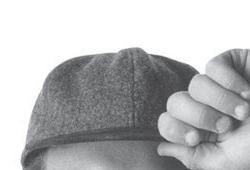
Don Mooney—For a young boy in late 1940s America, one of the most common dreams was to someday play in the big leagues. Perhaps only slightly more attainable (and age appropriate) is the dream to be a bat boy for a professional team. Don Mooney was one of the few who got to live that dream.
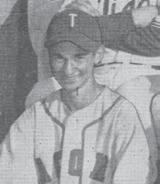

Born Aug. 28, 1931, in Tacoma, Mooney first started working in sports as a parking lot attendant and usher for the Tacoma Rockets Hockey Club from 1946–49. But for one magical summer in 1947, Mooney was the bat boy for the Tacoma Tigers. This season brought lifelong memories and lifetime friendships with Clay Huntington, Earl Kuper, and Dick Greco.
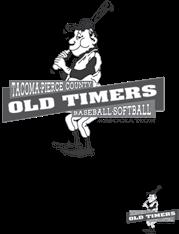

Mooney was a solid athlete in his own right, earn-
ing all-league honors twice as the hockey goalkeeper at Stadium High School. He also lettered twice as an outfielder for the baseball team before graduating in 1949. Following graduation, Mooney spent time working for the Milwaukee Railroad and serving in the Army during the Korean War. He worked for more than 30 years as an assistant and then as a traffic manager for Nalley’s Fine Foods. He was also a member of the coaching staff for the Foss High School girls’ slowpitch and boys’ basketball teams. Through it all, Mooney carried a song as a talented tenor in many theater productions, including the Stadium High School opera group.

Giovanni “John” Tomasi—While John Tomasi name might not stand out to many baseball and softball fans, that’s just the way he intended. A lengthy career spanning more than six decades as an umpire featured time as batboy for the 1948 Tacoma Tigers of the Western International League as he dedicated himself to making games function as smoothly as possible while staying out of the spotlight.
Tomasi first donned an umpire’s mask at the age of 14, when Harry Truman was in the White House. Two years later, he spent a summer as batboy for the local Tigers, and that combination of experiences set him on a course that would make the diamond his second home for the rest of his life.
Born August 1, 1931, in Tacoma, Tomasi graduated from Lincoln High School in 1951. By that point, he was already five years into his umpiring career and three years removed from his time as batboy. He got his start as an umpire in the summer of 1946, working for two dollars a game in the old Cub Scout youth softball league in Tacoma. Take inflation into consideration and the pay’s not a whole lot better in the 21st century.
“If you’re in this business for the money,” Tomasi said, “you’re in it for the wrong reason.”
Tomasi was clearly in it for the right reason, as his
54 2015 Hall of Fame Inductees continued
1947 Tacoma Tigers—Western International League: Don Mooney—front row-third from left. Other Tacomans included: Cy Greenlaw—back row, third from left. Pete Sabutis—back row, fourth from right. Dick Greco—middle row, second from right. Earl Kuper—middle row, first on the right.
Coaches: Ken Hotsko, Paul Martin, Don Mooney
2015 Hall of Fame Inductees continued contributions to the game stayed out of the frame of fame and fortune but made the game better for all he worked with. Inducted into the America Softball Association Region 15 Hall of Fame in 2004, he spent more than 60 years as an umpire. By the end of his career, he had had served as Chief Umpire for the SMSUA for several years and umpired the 2008 ASA Men’s Senior 50AA Slowpitch West National Championships.
Tomasi served in the army during the Korean War. He moved to Snohomish County when he married in 1966.
He worked high school and recreational baseball league games, as well as fastpitch and slowpitch softball, for more than 30 years before settling into softball exclusively in the late ’70s. Through the years, Tomasi trained and mentored many of his fellow umpires.
Bill Silves, the Umpire in Chief for ASA Region 15, an area that includes Washington, Oregon, Idaho, Montana and Alaska said, “He’s helped a lot of people in their climb to become better umpires without asking anything in return for himself.”
In the ’70s, Tomasi fell in love with men’s slowpitch softball and in 1979 he worked his first ASA national championship in York, Pennsylvania. Throughout his career, his goal was to not distract from the game in front of him.
“Well, the good umpires aren’t really noticed,” Tomasi said. “You call your game, walk off the field, get in your car and leave.”
Tomasi passed away on June 3, 2018.
Ken Higdon—Ken “Higgy” Higdon was born Feb. 26, 1963, and graduated from Wilson High School in 1981. He began his baseball career at the age of 15, working as a batboy for the Tacoma Yankees and later the Tacoma Tugs of the Pacific Coast League. Both clubs were Triple A affiliates of the New York Yankees and Cleveland Indians, respectively.
Higgy eventually moved into the role of Clubhouse Manager for the Tacoma Tigers, the Oakland A’s Triple A team. In all, he spent almost 10 years at Cheney Stadium gaining valuable knowledge and experience in running a professional baseball clubhouse.
In 1983, Higgy was afforded the opportunity to go to Arizona for Winter and Spring ball to assist in the clubhouses for the Dodgers and Oakland organizations. In 1987, he left Tacoma for a fulltime position as Equipment Manager for the California Angels’ Minor League complex in Mesa, AZ.

Seven years later, Higgy was called up to the big leagues in Anaheim. He served as the Clubhouse and Equipment Manager for the Angels, working endless hours and giving his heart for the
organization from 1994 until his retirement in 2009. During his time in Anaheim, the Angels made six postseason appearances and won the 2002 World Series, for which Higgy received a ring.
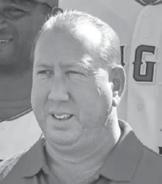
Upon retirement, Ken and his wife Sabrina moved to Sandpoint, Idaho. Throughout his life, Ken was an ambassador for baseball to kids getting their start in the game. A diligent worker and fiercely loyal friend, he continuously gave his time and resources to help organizations that supported the sport.

Ken unexpectedly passed away on January 4, 2017 following a routine surgery.

55
John Tomasi with wife Patricia
Ken Higdon was a batboy for the 1978 Tacoma Yankees team that won the Pacific Coast League championship.
Ken Higdon wearing his 2002 World Series ring with the Los Angeles Angels.
Nick Tucci (dec)—Nick Tucci, like the stadium where he worked, was an institution. You may not have known his name, but if you were one of the several million baseball fans who filed into Cheney Stadium to watch games in all kinds of weather since it opened in 1960, you probably knew his face.
Tucci, who died Jan. 9 at age 92, began working for Tacoma’s Class AAA baseball franchise the first year it came to town. He started in May 1960 as an usher, helping fans find their seats in what was then a brand-new ballpark.

By 1967, Tucci had moved up to Chief Ticket Taker, and he remained in that role for decades. Through a security check by the FBI before President John F. Kennedy attended a campaign rally there in September 1963; through a concussion caused when Tucci was hit by a foul ball; through seven name changes for the Tacoma franchise; through windy, rainy, cold night games, Nick was always there.
He missed only seven days of work through the mid-1990s, according a profile written by the Tacoma News Tribune’s Bart Ripp and published in 1996. Two of those absences were after the foul ball hit his head. “I didn’t get the ball,” said Nick.
Cheney Stadium was not his only civic activity. He also worked at the Tacoma Dome, the Puyallup Fair and the Goodwill Games when they came to Puget Sound in 1990. In fact, he supervised ticket takers for the events in Tacoma.

Nick Tucci was born in Fairfax, south of Carbonado in southeast Pierce County. He didn’t play sports in high school. He was a Sea Scout. He graduated from Puyallup High in 1949.

He served in the Marine Corps during the Korean War.
He married his sweetheart Gloria on June 3, 1952, and they were wed for more than 69 years. Like most of those he helped in the early years at Cheney Stadium, Nick Tucci was a sports fan.
“There was people coming out in those days who were interested in the ballgame,” he told Ripp. “They came to watch the game.”
At the stadium, he would typically carry a bag filled with souvenirs. He had
ticket stubs from the PCL All-Star Game at Cheney in 1974, another from a Sugar Ray Seales boxing match in 1973, a newspaper clipping from a 1949 Western International League game between the Yakima Bears and the Tacoma Tigers.
But more than the trinkets representing memories, Nick loved the fans. And they loved him back.
“Some fans won’t go in the first-base or third-base gates (at Cheney Stadium),” Nick told TNT. “They like to come in the main gate so they can see me.”
The people were what made the job great, he said. “The people I only see once a year or two. The people I see every night. It’s always the people.”
Quinn Wolcott —At age 19, Quinn Wolcott, who grew up in Puyallup, was the youngest umpire hired to work in the minor leagues in 2006. He was also the first umpire from Pierce County to make it to the major league as well.


Seven years later in 2013, Wolcott made the jump to the Major Leagues. His first games in the MLB were a doubleheader between the Arizona Diamondbacks and the Texas Rangers. Then on July 4, 2014, Wolcott was hired to work in the MLB fulltime and he replaced Gary Darling, who had retired.
At 28 years old, Wolcott was the youngest umpire working in the Major
56 2015 Hall of Fame Inductees
continued
Gloria and Nick with Rudolph.
Sorry Felix, but today I am the King.
Nick and Gloria man the gates at Cheney Stadium.
Leagues. Wolcott’s first postseason assignment was the 2016 National League Wild Card Game between the San Francisco Giants and the New York Mets.
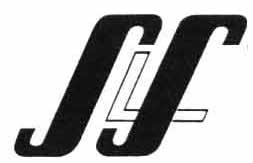

Wolcott’s climb to the top all began in 2006 when he attended the Jim Evans Umpiring Academy in Florida. He was then assigned to a short season in the Northwest Rookie League. At just 19 years old, he was at that time the youngest umpire in professional baseball.
In 2011, after umpiring in A and AA minor leagues for six years, Wolcott was promoted to AAA Pacific Coast League and he umpired winter ball in the Dominican Republic that season as well.
In 2013, Wolcott worked the Arizona Major League Spring Training. He was named the AAA PCL Crew Chief. It was his third year in the AAA Pacific Coast League.
Wolcott played baseball and football at Emerald Ridge High School in Puyallup. He started umpiring youth t-ball when he was only 12 years old.
Before going pro, Wolcott worked local high school and college baseball games. On his climb up through the minor leagues, he umpired in the Northwest League, the Midwest League, the AA Southern League and the AAA Pacific Coast League.
In his climb up to the MLB, Wolcott said one of his biggest thrills was working the first game at the new, remodeled Cheney Stadium in Tacoma. It was a long climb up to the MLB, one that Wolcott worked hard to achieve.
In Tacoma call 252-383-2636
Fax 253-383-1061
In Western Washington Call 1-800-232-1012

57 2015 Hall of Fame Inductees continued
Quinn Wolcott has the emphatic “out” as the Angels’ Yunel Escobar slides across home plate.
Sound
Since
Providing Rental Services and Direct Sales for Linen Supply, Health Care, Entryway Mats & Logo
SUPERIOR LINEN SERVICE Serving the Greater Puget
Area
1926
Mats
2015 Hall of Fame Inductees continued
Bill Ruth (dec.)—Bill Ruth, who passed away September 7, 2021 at 87 years young, sponsored, managed and played on Senior Softball teams for almost thirty years. As the owner of W. E. Ruth Realty he actually sponsored his first slow pitch softball team back in 1967 and his teams were well known for competing, consistently, at the highest level for many years. Bill was also President of the Independent Sports Association. His main business was real estate throughout the Northwest and in Cabo San Lucas, Mexico. Bill became President of Senior Softball USA in 2000 and was a guiding voice behind the growth of SSUSA in both America and around the world. Bill was inducted into four halls of fame—USSSA, Senior Softball National, SSUSA and the ISA.
I played on several Senior Softball teams that Bill sponsored and we won Senior Softball National titles in the 55 & over and 60 & over division. For 20 years Bill and his staff organized trips all over the world with the result being Senior Softball players from the USA playing teams from various countries.
In the words of Terry Hennessy, Executive Director of Senior Softball USA, “the memories of this very special man are the best legacy Bill Ruth could leave us.” A very special man indeed.
Ron Zollo (dec)—Let’s tip our cap to Ron Zollo, who was the longest tenured full time employee in the history of Cheney Stadium. Ron joined the Tacoma Twins in 1972 after one year with the Portland Beavers as a marketing and sales executive. He coupled with Stan Naccarato with Baseball Tacoma, Inc. and transformed the Triple A team into one of the most successful in the entire country. Cheney Stadium was the place for great outdoor baseball, a strong season ticket base and fun promotions for the entire family.
The Z-Man, as he was fondly known, was a passionate baseball fan and knowledgeable about players, statistics and eventually autographed merchandise. He was well known around the country as a collector and authenticator.
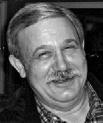
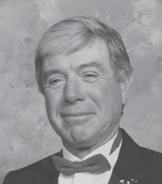
Ron established and maintained relationships throughout baseball and was friends with many of the greatest players who played for Tacoma, including Jose Canseco, Mark McGwire, Jose Rico and Scott Brosius.
He was the organizer of the first Used Car Night at Cheney Stadium when a used car was given away each inning to a lucky or sometimes unlucky fan! The first time the promotion was held, Joe Garagiola talked about it on the Game of the Week.
When the baseball card and autographed memorabilia business boomed in the late 80’s and 90’s, Ron organized several successful autograph shows at Cheney Stadium with Hall of Famers, Jim “Catfish” Hunter and Willie Stargell. At one time Ron had autographs of every major athlete and celebrity.

The in-stadium voice of Cheney Stadium, Ron handled the public address duties for over 20 years and had the great opportunity to be in front of the microphone for the United States vs. the Soviet Union baseball game in the 1990 Goodwill Games. It was the Russians first international game they ever played and Ron’s introductions were broadcast around the world.
No one loved baseball more than Ron and he was a true icon in the history of Tacoma Baseball at Cheney Stadium.
58
Shortstop Gil Garrido gets ready to apply the tag to a sliding San Diego Padres player.
Looking Back—A trip down memory lane
The Dynasties were sponsored by Warren Chinn and the team was a one-year wonder. Veteran Cheney Studs manager Joe Budnick teamed up with Bob Maguinez and Earl Hyder (both members of the 1960 Cheney Studs national championship team) and former major league outfielder Aaron Pointer, to put the club together. The team was comprised of long-time veterans of “America’s Past-time” and they reunited on the field for the “love of the game”. Despite their age, this group of crafty, wily old veterans were still talented. Former Tacoma Giants and San Francisco Giants pitcher was the main man on the mound and he won eight straight games to start the season.


According to former Cheney Studs player, Mike Carnahan, “we were one of the first semi-pro Oldtimers teams in Pierce County with the majority of players over 35. We played our home games at Heidelberg Park and did play the inmates at McNeil Island a couple of times as well. Our offense was awesome, we scored a ton of runs and qualified for the state championship series. After losing the first game on day one we got a great pitching performance from Don Anderson but the third game was a defensive disaster as we lost 26–23. The outcome at the state tournament would have been completely different if our ace pitcher, John Pregenzer, had suited up and played in that final game
honeymoon. He was unhittable that season.”
59
Dynasties Restaurant—Tacoma: Top Row, l. to r.: Hank Whitehead, Bob Maguinez, Jim Cole, Don Anderson, Mike Carnahan, Bob Storm, Tom Dickson Jr. Middle Row l to r: Bill Murphy, Earl Hyder, Dennis Zamberlin,George Kritsonis, Joe Budnick (Manager). Front Row l to r: Karen Carnahan (Bat Girl), Nick Tsoukalas, John Kuschell, Marty Stevens, Steve Sand, Aaron Pointer. Missing: John Pregenzer, Pat Gosnick, Ozzie Williams, Gary Kennedy, Tom Horn and Joe Wood.
The Cheney Stadium grounds crew and clubhouse crew included bat boys, left to right, Sam Adams, Don Brisbois and Charles Spruck and in the back row, Groundskeeper Scotty Ryan and clubhouse attendants Steve Johnson (left) and Mike Todd (right).
Did you know?
•Dick Phillips is the only Tacoma player to be named the PCL MVP. Phillips earned the honor in 1961 when he hit .267 with 16 home runs and 98 RBI for the Giants, leading them to the PCL championship in just their second year of existence.
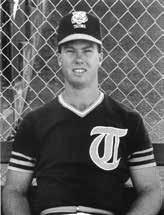
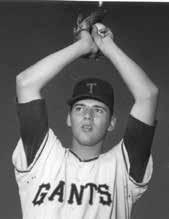

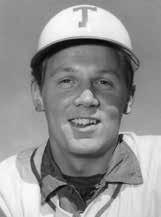
•Dick Estelle threw two no-hitters for the Tacoma Giants, one each in 1964 and 1965.

•Adrian Garrett belted 43 home runs in 1971 for the Tacoma Cubs, including 19 at Cheney Stadium.
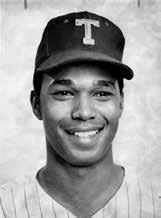

•Burt Hooton struck out 19 batters against Eugene on August 17, 1971 at Cheney Stadium for the Cubs, a record that still stands today.
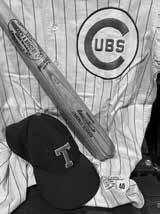
•Aaron Pointer is the last professional baseball player to hit .400 over an entire season, a feat he accomplished in 1961 when he hit .402 for Salisbury in the Western Carolina League.
•The Tacoma Tigers roster featured three consecutive American League Rookies of the Year for the Oakland A’s. Jose Canseco (1984), Mark McGwire (1985) and Walt Weiss (1986). McGwire played third base for the Tigers before moving to first base with Oakland.
60
Dick Phillips
Dick Estelle
Adrian Garrett
Burt Hooten
Jose Canseco Mark McGwire
Aaron Pointer
Ben Cheney gets some batting tips from Willie Mays who stopped by to visit Ben in his office prior to playing in a exhibition game in the ‘60s between the Giants of Tacoma and San Francisco.
The 1961 Cheney Studs

The following players are listed in alphabetical order, and not as they appear in the photo.
Gene Anderson
Mike Carnahan
Hal Dodeward
Monte Geiger
Mike Gillis
Ken Jacobson
Mel Manley
Glenn Mattison
Bucky O’Brien
Greg Rodell
Gary Snyder
Bob Walker
Jim Broulette
Ben Cheney
Andy Erickson
Bill Gillis
Earl Hyder
Larry Loughlin
Bob Maguinez
Larry McCauley
Eddie O’Brien
Tim Smith
Rolland Todd
Steve Whitaker
Take the Quiz!
How well do you know the Cheney Studs from 1961?
Answer the questions below about the 1961 Cheney Studs:
A. Name the two non-players from Pierce County.
B. Name the five players from Pierce County.
C. Name the one player (Not from Pierce County) who pitched for the Tacoma Tigers of the Western International League in 1951.
D. Name the player from King County whose son is the head basketball coach for a current NBA team.
E. Name the player who was the head coach for the Portland Trailblazers of the NBA.
F. Name the coach who played for the Pittsburgh Pirates.
G. Name the player who pitched briefly for the Tacoma Giants.
See page 62 for the answers.
“Iron” Joe McGinnity (right) pitched 10 seasons in the major leagues and compiled a 246–142 record, earning himself a place in the baseball Hall of Fame. But, at the age of 42 he found himself in Tacoma and not only owned the club but managed and pitched in the Northwest League from 1913–1915, finishing with a 64–55 won-lost record.

61
Quiz Answers

In the attached photo of the 1961 Cheney Studs team there are:
A. Name the two non-players from Pierce County. Ben Cheney and Gene Anderson
B. Name the five players from Pierce County. Steve Whitaker, Earl Hyder, Larry Loughlin, Bob Maguinez and Mel Manley
C. Name the one player (Not from Pierce County) who pitched for the Tacoma Tigers of the Western International League in 1951.

Hal Dodeward
D. Name the player from King County whose son is the head basketball coach for a current NBA team.
Gary Snyder—Quinn Snyder of the Utah Jazz
E. Name the player who was the head coach for the Portland Trailblazers of the NBA. Rolland Todd was the first coach of the Portland Trailblazers. He attended the UW for graduate school.
F. Name the coach who played for the Pittsburgh Pirates.
Eddie O”Brien
G. Name the player who pitched briefly for the Tacoma Giants.

Andy Erickson in 1963

62 Congratulations to this years Inductees! 253-843-9436 e-mail: khgraphics@aol.com
1961 Cheney Studs—Back row l. to r.: Jim Broulette, Bill Gillis, Steve Whitaker, Gary Snyder, Mike Carnahan, Earl Hyder, Larry Loughlin, Hal Dodeward, Rolland Todd, Eddie O’Brien, and Gene Anderson. Middle row l. to r.: Mike Gillis (batboy), Bob Maguinez, Tim Smith, Bob Walker, Ben Cheney, Larry McCauley, Andy Erickson, Monte Geiger, and Greg Rodell. Front row l. to r.: Ken Jacobson, Glenn Mattison, Bucky O’Brien, Mel Manley, and unknown.
How Much is a Name Worth? Try Ten Million!
Born on Oct. 14, 1889, just a few months after the Great Seattle Fire, Ten Million graduated from Seattle High in 1908.
The son of a prominent judge, E.C. “Elmer” Million, Ten got his name because, with the last name of Million, his mother wanted her son to stand out. As the Cleveland Indians Encyclopedia explained it, Ten’s mother had a “penchant for the unusual.”
When, years later, Ten and his wife, Christine, had a daughter, Ten’s mother bribed them with $50 to name her Decillian Million, so that she would be known as “Decillian Million, daughter of Ten Million.” Decillian Million later used the nickname “Dixie.”
Ten Million earned one varsity letter at the University of Washington (1910) and began his professional career with the Victoria Bees of the Northwestern League (1911).


After he hit .276 in 160 games for the Bees that year, the Cleveland Naps purchased his contract. But Ten Million never played in the majors due to a knee injury. In fact, he never officially made the team.
So Ten Million returned to the west and embarked upon what became a 692-game minor league career
with stops in Tacoma, Sioux City (Western League), Spokane (Northwestern League) and Moose Jaw (Western Canadian League). Ten Million ended his career with a third tour in Tacoma (1912–14), playing under Iron Man McGinnity.
Done with baseball, Ten Million relocated to Seattle in 1915, served in the Army during World War I, and then returned to Seattle, where he worked as a claims adjuster, then for Spalding Sporting Goods, and kept active in sports by refereeing high school football, basketball and baseball games.
Ten Million also sold Ford automobiles. When Ford rolled its 10 millionth car off the assembly line, in the 1920s, the company shipped the vehicle to Seattle so that Ten Million could be the one to sell it, an event that rated a newspaper article and photograph.
When he finally retired, Ten Million purchased a house near Deception Pass. He died June 18, 1964, in an Anacortes hospital following a long illness. He was 74.
The Pot & Kettle baseball team was coached by Bud Thomsen who was assisted by Phil Rogers. Front Row l. to r.: Tom Rogers, Bob Thomsen, Dick Long, Dennis ________, Tom Dickson, Doug Binkley and Joe Dille. Back Row l. to r.: Phil Rogers, Frank Manthou, Ed Ward, John McMasters, Mark Cameron, unknown, Scott Eshelman and Bud Thomsen.

63
Ten Million (right), age 24, played for the Tacoma Tigers in the Northwestern League in 1914, under manager Joe McGinnity. Teammate Harry Kurfess pitched for the team that finished 64–93.
Recall Baseball Team—In 1910, one-hundred and fifty petitions were distributed to recall Tacoma’s mayor, A. V. Fawcett. According to The Tacoma Daily News (Januaey 17, 1910), a list of seven charges was filed against the mayor and concerned citizens showed support for the recall in different ways. South Tacoma resident, Andrew Hazen, left front and two unidentified friends, wore baseball uniforms with RECALL emblazoned on the front of the shirts while posing for a photographer at Sterling Studio in downtown Tacoma. The letter “A” is somewhat bolder than the other letters on the shirt, which may allude to the beginning of the mayor’s first name, Angelo. The ornately carved wood chair provides Hazen and his friends with a prop and the baseball mitts add a look of reality. Mr. Hazen was about to reign a career at Atlas Foundry that spanned forty-four years. (Hazen Family.)

Gertrude Wilhelmsen, a Puyallup High School graduate, played shortstop for the Tacoma Tigerettes fastpitch team in the early 40s. She also participated in the 1936 Berlin Olympics where she finished eighth in the discus and seventh in the javelin. Note the Olympics patch on her uniform.

Dennis Werth played for the Tacoma Yankees in 1978 and his son, Jason, who played 15 years in the major leagues, finished his career at age 39 with the Tacoma Rainiers in 2018.

64
Did you know?
•Troy Neel is the only Tacoma player to ever win the PCL batting title. Neel hit .351 in 1992 for the Tigers. Brian Raabe broke Neel’s franchise record when he batted .352 in 1997 for the Rainiers.
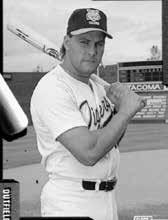
•John Halama threw a perfect game for the Tacoma Rainiers on July 7, 2001 at Cheney Stadium against the Calgary Cannons. It was the first 9-inning, perfect game in the PCL’s 99-year history. Three days earlier, Brett Tomko fired a no-hitter for Tacoma in Oklahoma City.
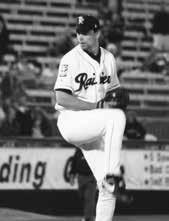
•19-year old, Alex Rodriguez hit .360 with 15 home runs and 45 RBI in 54 for the Tacoma Rainiers in 1995. Rodriguez belted a home run for the Calgary Cannons the year before at Cheney Stadium against the Tacoma Tigers.
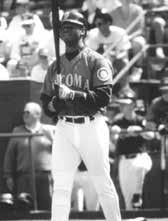
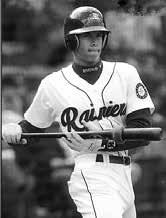
•Ken Griffey Jr skipped one traditional step during his quick ascension to the major leagues in 1987 and ’88: Triple A. But 6½ years after breaking out as a teenage phenom for the Seattle Mariners in 1989, Griffey made an impromptu appearance in the minors during a rehab assignment, suiting up for the Tacoma Rainiers to play in the first TripleA game of his career at Tacoma’s Cheney Stadium on August 13, 1995. It was Kids Club Day that afternoon so NBA coach George Karl threw out the first pitch and Ahmad Rashad, Mt. Tahoma/NFL wide receiver handled the first base coaching duties.
•The largest crowd ever at Cheney Stadium was an estimated 25,000 people to hear President John F. Kennedy speak on September 27, 1963. Kennedy was assassinated two months later in Dallas.
65
Troy Neel
Jon Halama
Alex Rodriquz
Ken Griffey Jr.
Are You A Member of the John Pregenzer Fan Club?
John Pregenzer was born Aug. 2, 1932 in Burlington, Wisc., and he spent much of his professional baseball and post-baseball career in the South Puget Sound region.
Pregenzer attended Illinois Wesleyan University and signed with the Pittsburgh Pirates before being picked up by the San Francisco Giants as a minor leaguer during the 1960-61 offseason in exchange for a $100 waiver fee. He made the Giants’ roster in 1963, and that brought him to the attention of San Francisco Chronicle journalist Novella O’Hara, a baseball fan who wrote the “Question Man” column for the San Francisco Chronicle, who decided to organize the “John Pregenzer Fan Club.”
The basis of the club was the premise that the Giants could acquire a pitcher for such a low fee, prompting O’Hara to wonder if she could buy one, too. The club grew to 3,000 members who received a membership card for the $1 fee. Pierre Salinger, press secretary for President Kennedy was a member as were many others in the political and entertainment world.
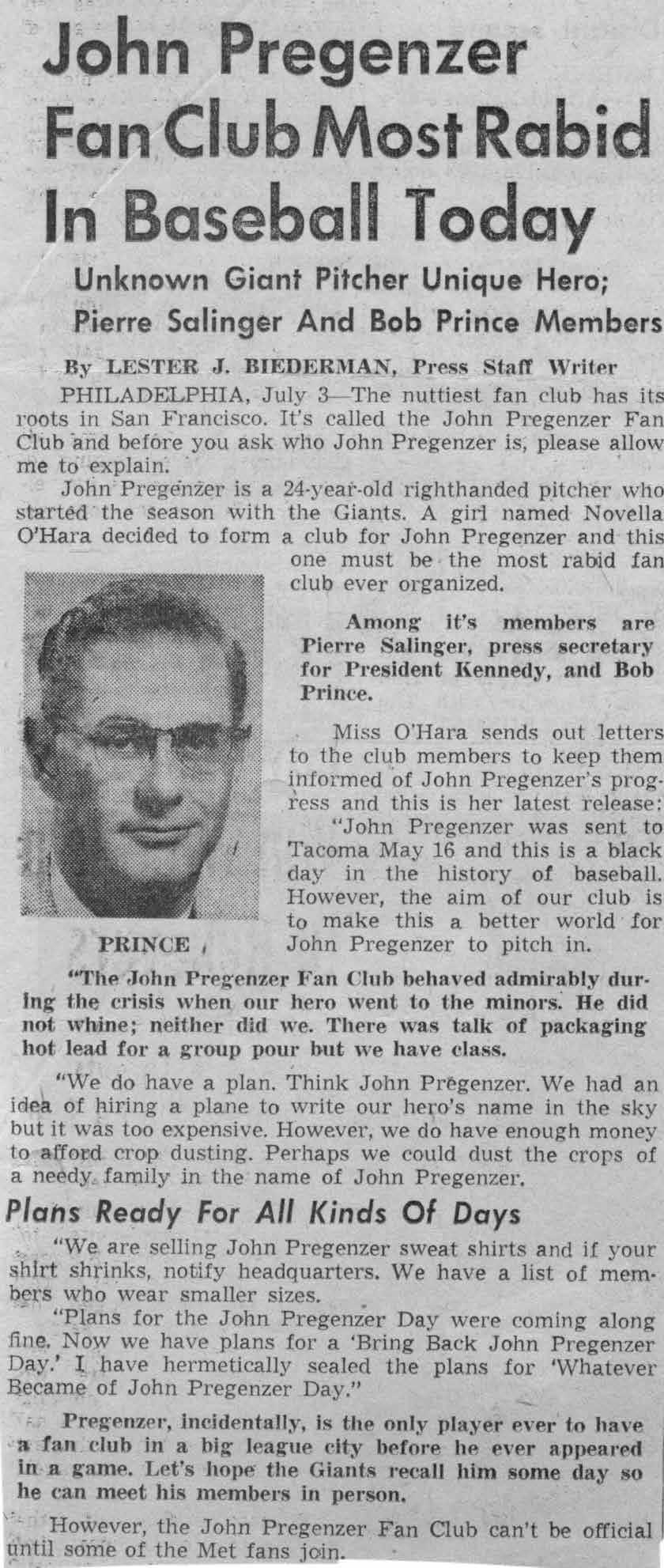
Pregenzer pitched in 19 games for the Giants over the 1963-64 seasons, while spending parts of those seasons and 1965 with the Tacoma Giants minor league team. He finished his major league career with a 2-0 record and closed out his minor league career with a 66-49 record and 3.67 earned run average over eight seasons.

Pregenzer’s best minor league season came in 1965, when he set the Pacific Coast League record with 28 saves. Meanwhile a career highlight came with Tacoma in June 1963, when the 6-foot-5-inch, 220-pound right-handed pitcher hit a game-winning home run one night and followed it up with a game-winning squeeze bunt the next night. He was named to Tacoma’s PCL All-Time All-Star team in 1984.

Following his playing career, Pregenzer spent two years as the radio analyst with Don Hill for Tacoma Giants games. He went on to coach
baseball at Orting High School (1968-69), Franklin Pierce High School (1974-76) and Washington High School (1985-91). He played for Cloverleaf Tavern and Bullhorn Tavern slowpitch softball teams from 1966-85 and helped the Mullen’s Auto Body squad win the 1967
66
Pregenzer
state basketball championship, led by former Gonzaga University star, Frank Burgess, who led the nation in scoring his senior year. John also compiled a 49-5-2 record as a junior high football coach and won seven championships in 15 years as a junior high basketball coach.

The fan club lasted longer than Pregenzer, who pitched in 19 games before being sent to the minors. Before Pregenzer’s departure, however, Miss O’Hara had arranged for him to receive a baked pheasant testimonial dinner, a quality transistor radio and a scroll naming him honorary mayor of Fresno.” At its peak, the John Pregenzer Fan Club attracted 3,000 members. Interestingly enough, Pregenzer was the only plyer ever to have a fan club in a big league city before he ever appeared in a game.





67
continued
MULLEN’S FENDER BENDERS— Back row l. to r.: Wayne Carlson, John Pregenzer, Scott Weatherwax, Bob Royal and Frank Burgess. Front row l. to r.: Henry Rivers, Mitch Mullen, Al Brisbois and Dr. Larry Baer.
John and Bob Maguinez were buddies on the diamond and at the nearest fishing hole.
Tacoma-Pierce County High School Sister City Cultural Exchange Program (1987–2009)
The Sister City Cultural Baseball Exchange between Tacoma, Wash., and Kitakyushu, Japan, came to fruition when Takeshi Ikeda and Hiroshi Yaskawa came to a mutual agreement to form the exchange in 1987. Since then, over 800 Young Ambassadors have enriched their lives with the opportunity to play international baseball and gain a greater cultural understanding of each other.
The Sister City mission statement of “promoting peace through mutual respect, understanding, one individual, one community at a time,” clearly states the goal of the exchange program. Since its formation, Takeshi Ikeda, Tony Anderson and Joe Kosai all served to promote the exchange and its cultural benefits. Tak, as he was known to his friends, believed that
20 years until his death in 2008. Tony Anderson served with the baseball exchange from 1991-2009, working as the chairperson since 1994. Born in 1957, Anderson wrestled, played football and excelled at baseball at White River High School. Tak Ikeda asked Anderson to participate in the program in 1991, and Tony has not looked back since. Joe Kosai took the first high school baseball team to Kitakyushu as a group leader to begin the program. In honor of his dedication to the exchange, Kosai received the Order of the Rising Sun, Gold Rays with Rosettes award from the Japanese government in 2005.



through sports we could improve our understanding between the Japanese and American cultures. He served as co-chairman of the Sister City program for
Today, the Sister City Cultural Baseball Exchange continues to offer young athletes the opportunity to broaden their minds and discover firsthand how similar people are all over the world, all while allowing them to experience international baseball. And, in celebration of the 50th anniversary of the Sister City program with Kitakyushu, a 22-member delegation will travel to Japan in August to hear the cry of, “Play Ball”, one final time.

68
1987 Japan team
Left to Right: Tony Anderson, Sister City Exchange Program Coordinator; Sadaharu Oh, Japan’s all-time homerun king; and George Bender, member of the Tacoma-Pierce County contingent.
1994 Team taken at Cheney Stadium
Commemorative t-shirt



69 Sister City Cultural Exchage Program continued
Left to Right: Tony Anderson and Bob Maguinez watch a game from the dugout at Cheney Stadium in 1993.
Higuchi Home-stay Family taken at Kitakyushu Stadium in 2009.
Tacoma-Pierce County team in Takuma, Japan on the way to Kitakyushu.
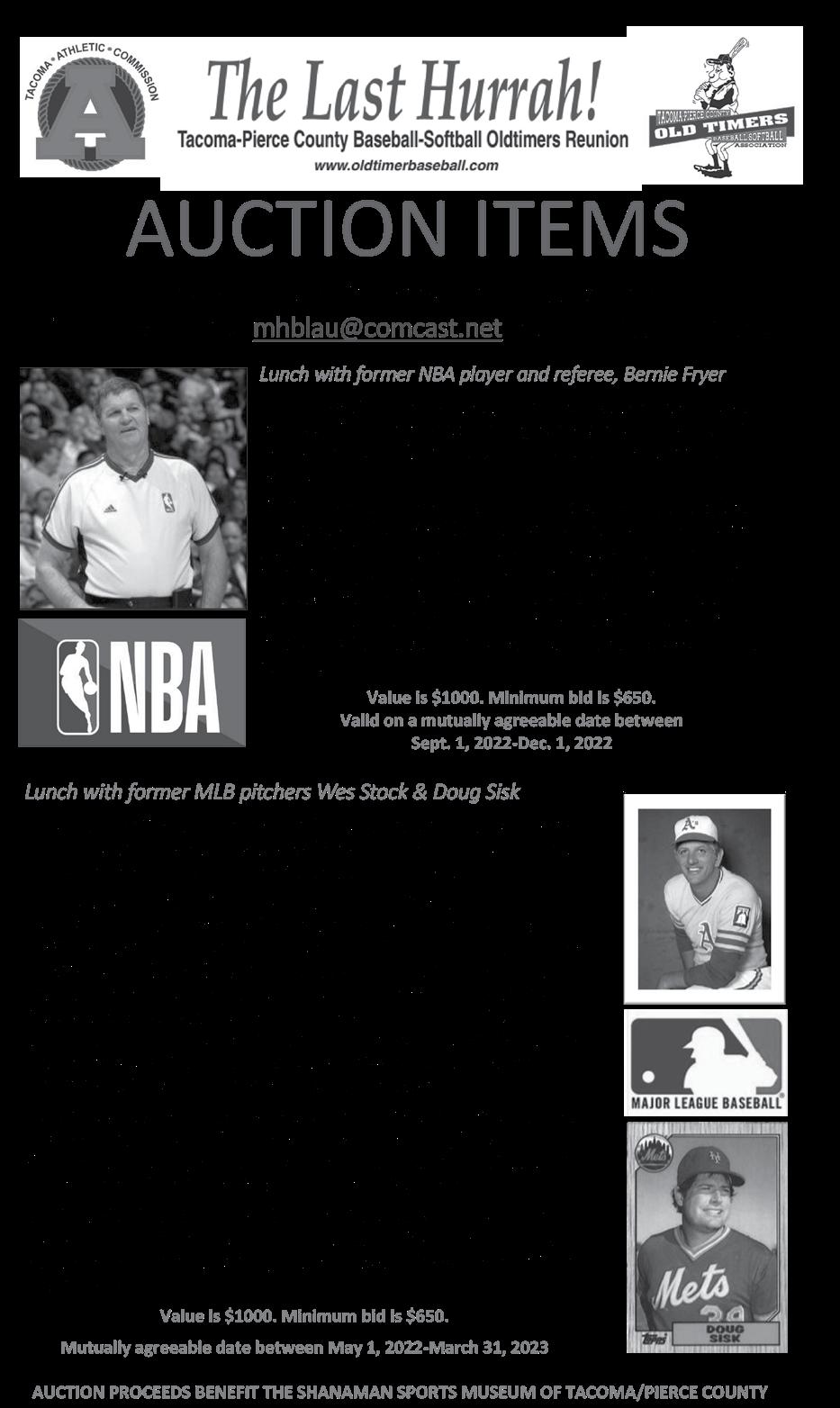
70
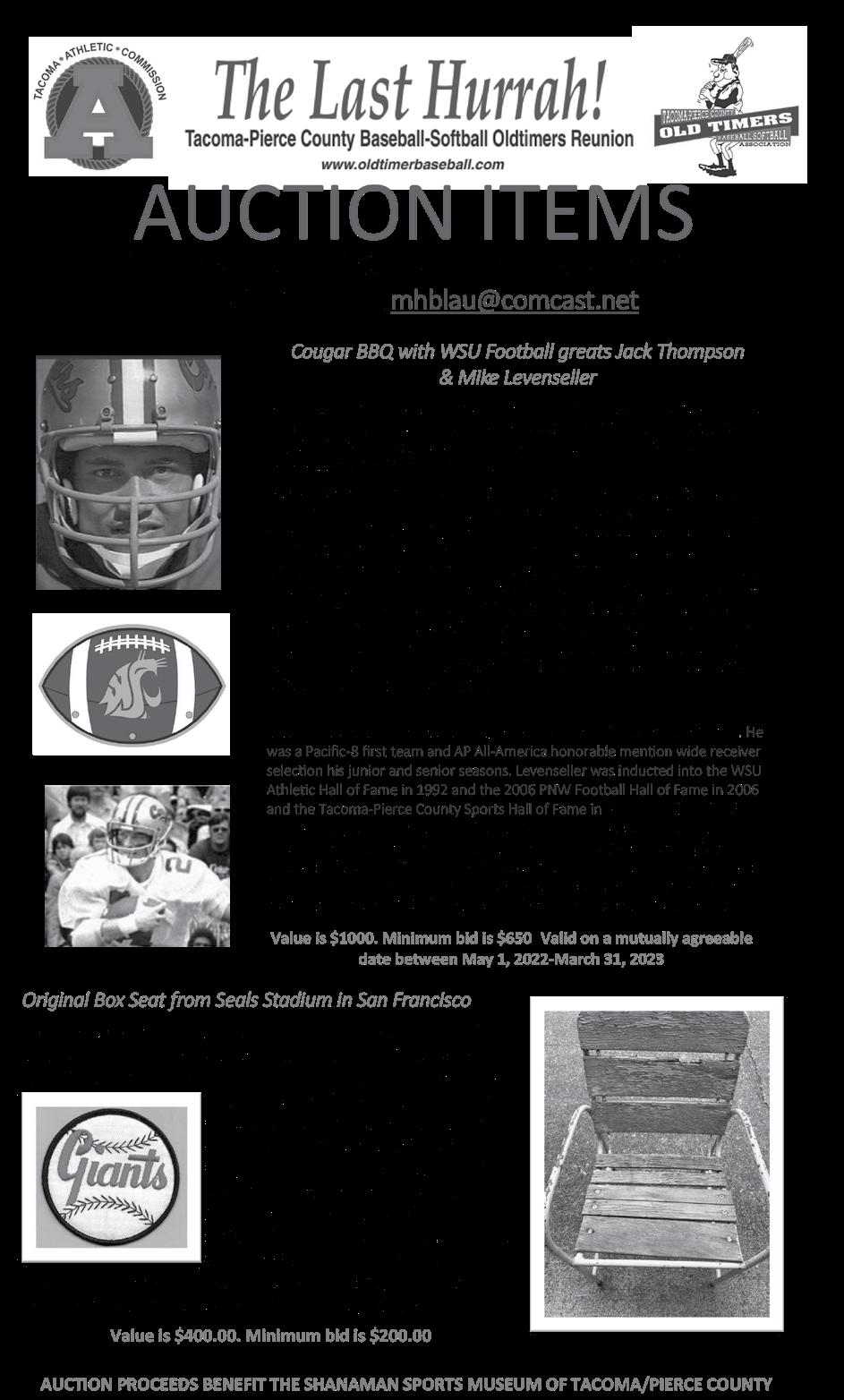
71
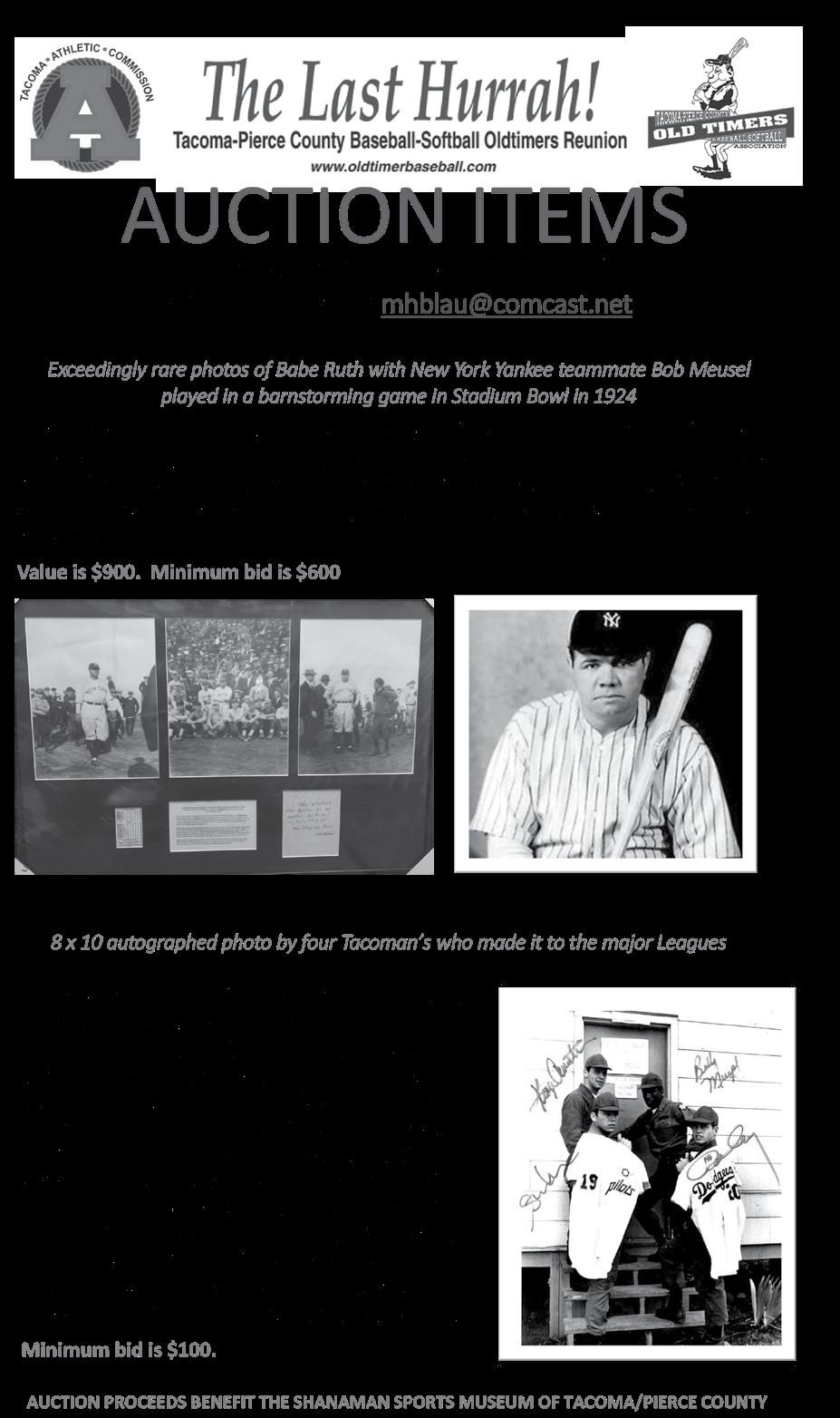
72
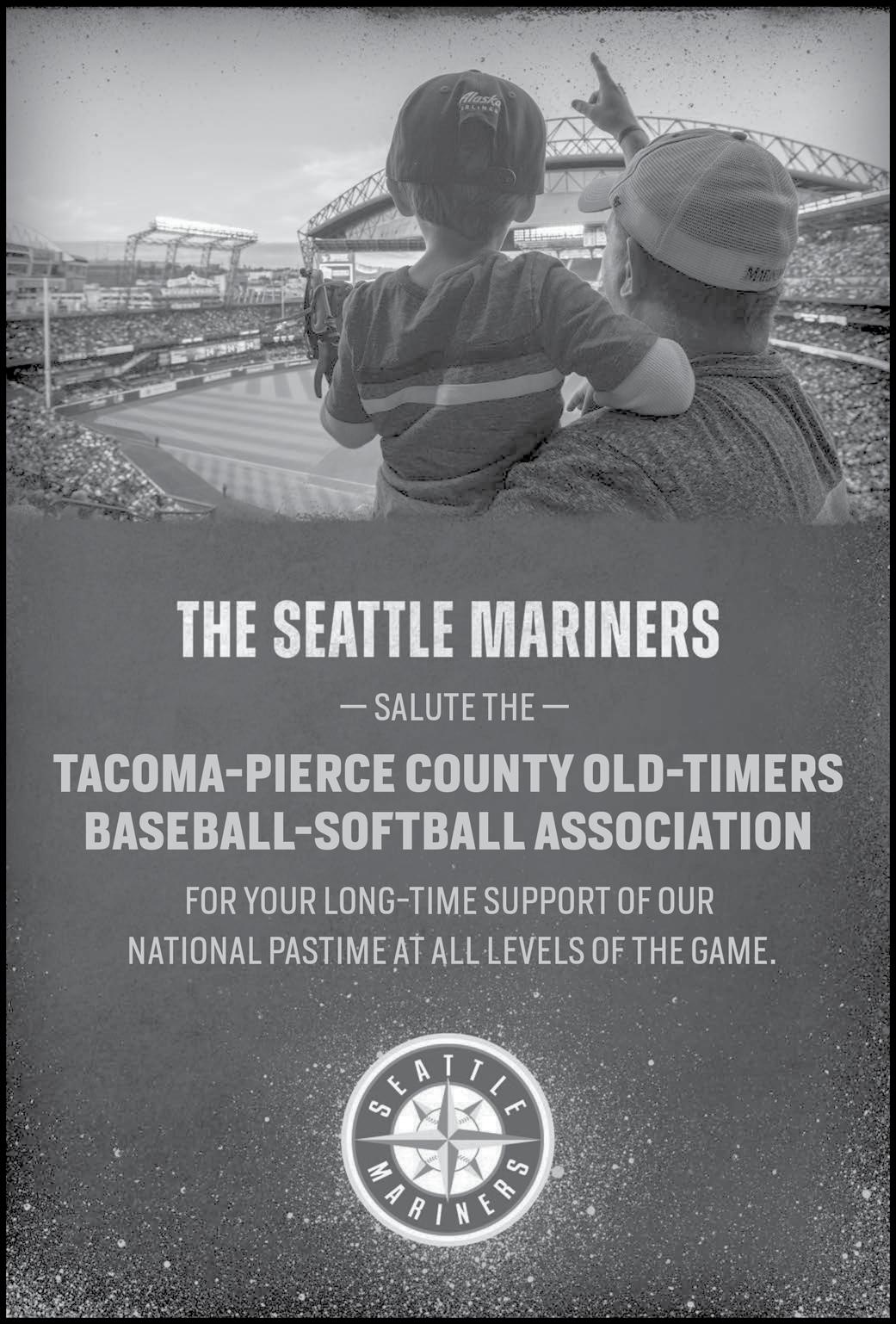
73
74 253-472-5500 cascadeprintmedia.com YEAH, We Can Do That! Print Package Display Banners & Signs Vehicle, Window & Wall Graphics Apparel Promotional Products Direct Mail Company Stores Corporate Gifts





















































































































